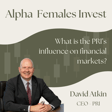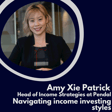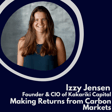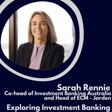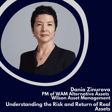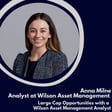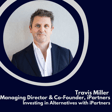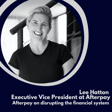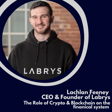
Exploring the Crypto World
We release a previously recorded episode from our archives with Mark Hiriart from OSL. We discuss the role of crypto currency in the institutional landscape and break down the value of digital assets.
Please note that this episode was recorded in mid 2022 and some edits have been made to keep it relevant for today's audience. Mark Hiriart has left OSL since recording.
The Alpha Females Invest is a financial podcast for those who want to elevate their investing knowledge. We host a series of experts to navigate a technical deep dive into their field of expertise.
We aim to promote gender diversity by having at least an equal representation of female guests on our show.
Thank you for listening and supporting The Alpha Females Invest.
Disclaimer: The views expressed in this podcast are those of the speaker. The content is not financial advice. You should seek the assistance of a professional who can take your personal circumstances into account prior to making any investment decision.
This episode was edited by Emily Li.
The AFI music is courtesy of artist @tmykmusic.

